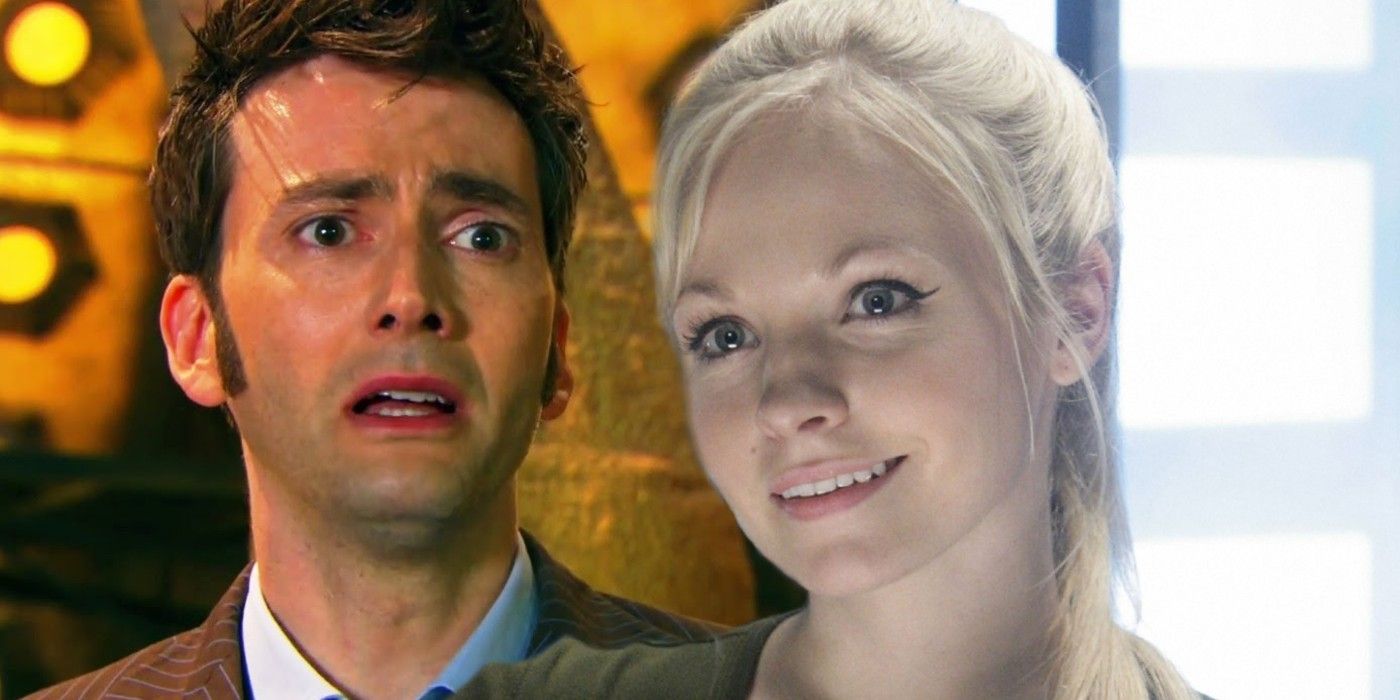Why doesn't Jenny change appearance when she appears to regenerate in Doctor Who? The Time Lords have a few unique tricks up their sleeves, but by far the most famous is regeneration. After suffering a fatal injury or succumbing to old age, Gallifrey's finest will change every single cell in their body, renewing entirely to avoid death a grand total of twelve-ish times. This fun mechanic ensures Doctor Who can survive indefinitely, burning through lead actors like the TARDIS does custard creams.
In Doctor Who season 4's "The Doctor's Daughter," David Tennant's Tenth Doctor, Freema Agyeman's Martha Jones, and Catherine Tate's Donna Noble travel to Messaline, where two tribes are locked in constant warfare, replenishing their ranks using DNA replicators. Naturally, the Doctor finds himself inside said replicator, and Jenny pops out the other end. Though she wasn't created via traditional means, Jenny is the Tenth Doctor's very own daughter, and he immediately takes her under his wing. Come the episode's finale, Jenny sacrifices herself to protect her old man, and The Doctor departs Messaline in despair. Once the TARDIS has vworped out of view, however, Jenny miraculously comes back to life - and without changing her appearance.
While Doctor Who leaves the mechanics of Jenny's return intentionally vague (The Doctor isn't even around for a scientific exposition dump), the simplest explanation is that Jenny isn't regenerating. When the process begins, the energy exuding from Jenny's mouth isn't purely gold as seen in traditional Time Lord regenerations. There's a green hue to the substance she exhales, exactly like the gas generated by Messaline's terraforming Source machine. Considering The Source was powerful enough to render a barren planet habitable, it could realistically revive a recently deceased clone. This means Jenny didn't inherit her dad's regeneration power (otherwise it would've happened sooner), and was afforded a one-off revival via alternate means. Of course, there's no reason she'd change appearance in this context.
It makes logical sense that a simple (relatively speaking) DNA replicator couldn't copy The Doctor's ability to regenerate. As revealed in Doctor Who season 12, the Gallifreyans spent many years attempting to manufacture regeneration from The Doctor's DNA without success. Expecting a simpler race to achieve that feat just isn't realistic (relatively speaking, once again).
Even if Jenny did regenerate due to her Time Lord biology, there's still a plausible explanation for her to retain the same appearance and, once again, Messaline's technology is to blame. Captain Jack Harkness is another Doctor Who character revived via Time Lord science, after Rose Tyler imbued him with power from the Heart of the TARDIS. Though Jack is kept alive with Time Lord energy, he too retains the same form, just like Jenny. This might suggest "artificial" regeneration can only recreate immortality, but not the wholesale visual refresh... unless you're River Song.
While there's little point dissecting the science behind Jenny's death-defying antics further, there is a compelling behind-the-scenes reason for not changing her appearance. Although she'd later appear in comics and audio adventures, Doctor Who always intended Jenny as a one-off character. Had she regenerated properly in the final moments of "The Doctor's Daughter," her Time Lord credentials would be set in stone, and Doctor Who simply couldn't ignore such an important character. Jenny's revival is intended as a happy ending, not a setup for the future. For this reason alone, it was imperative that Georgia Moffett not be switched for another actor.

